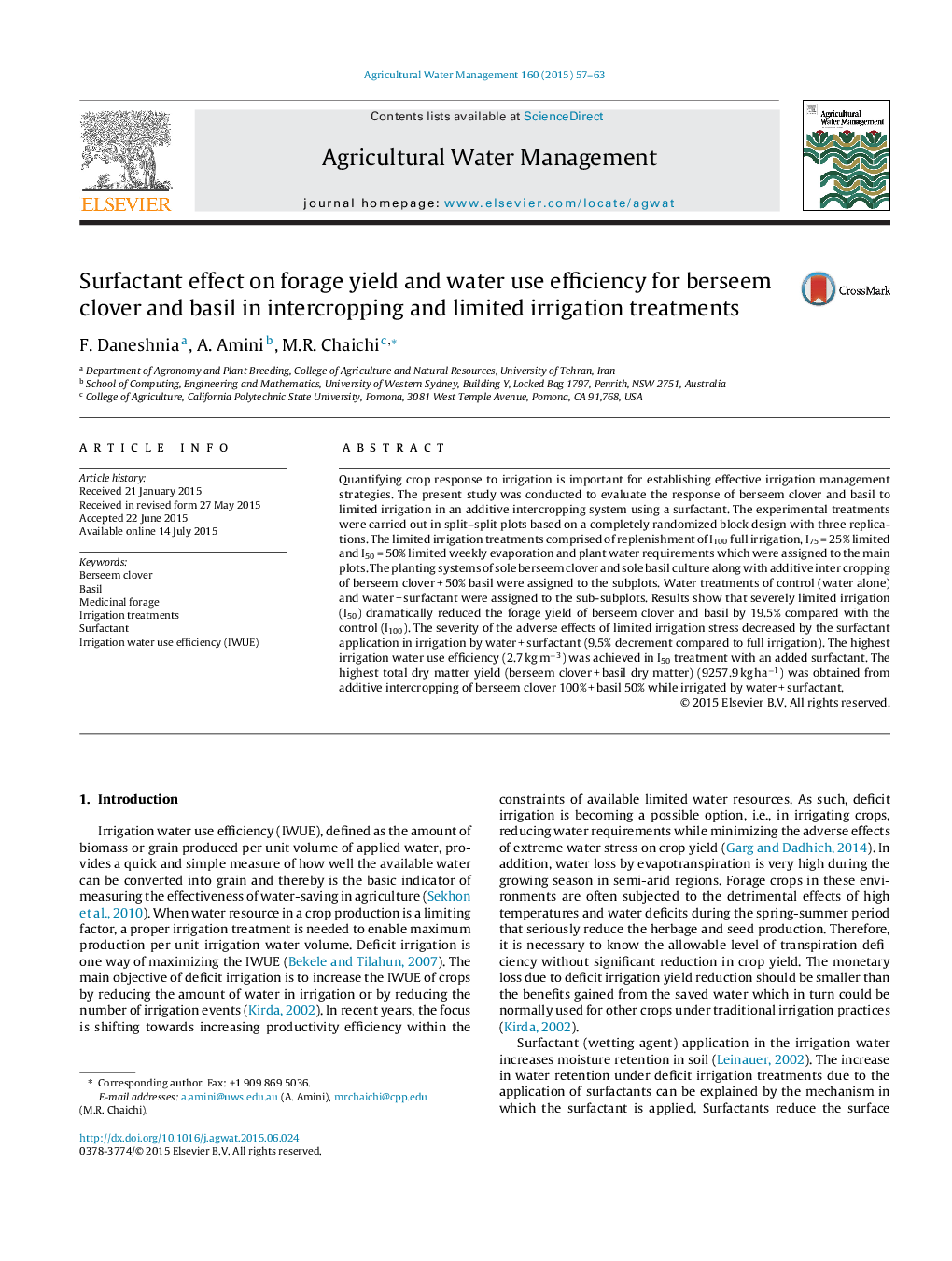| Article ID | Journal | Published Year | Pages | File Type |
|---|---|---|---|---|
| 4478404 | Agricultural Water Management | 2015 | 7 Pages |
Quantifying crop response to irrigation is important for establishing effective irrigation management strategies. The present study was conducted to evaluate the response of berseem clover and basil to limited irrigation in an additive intercropping system using a surfactant. The experimental treatments were carried out in split–split plots based on a completely randomized block design with three replications. The limited irrigation treatments comprised of replenishment of I100 full irrigation, I75 = 25% limited and I50 = 50% limited weekly evaporation and plant water requirements which were assigned to the main plots. The planting systems of sole berseem clover and sole basil culture along with additive inter cropping of berseem clover + 50% basil were assigned to the subplots. Water treatments of control (water alone) and water + surfactant were assigned to the sub-subplots. Results show that severely limited irrigation (I50) dramatically reduced the forage yield of berseem clover and basil by 19.5% compared with the control (I100). The severity of the adverse effects of limited irrigation stress decreased by the surfactant application in irrigation by water + surfactant (9.5% decrement compared to full irrigation). The highest irrigation water use efficiency (2.7 kg m−3) was achieved in I50 treatment with an added surfactant. The highest total dry matter yield (berseem clover + basil dry matter) (9257.9 kg ha−1) was obtained from additive intercropping of berseem clover 100% + basil 50% while irrigated by water + surfactant.
